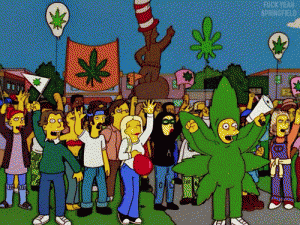When I started this assignment I had many communities that I could talk about, like everyone else did, I am sure. However, the more I thought about it, the more I realized, that some were much more important than others. These specific communities shaped me into the person I am today and they are a huge part of my life and the way I think, act and talk in my everyday life. It is where my biggest commitments lie, where I have experienced my greatest pleasures, and I’ve dealt with my most serious problems, as said by the definition given by the authors of Critical Situations.
The Hispanic community has always been a huge part of my life; more specifically my mexican community. I was born in the United States however, my dad was born in Mexico and my mom, not actually born there, however spent most of her life there and grew up in Mexico. With that, you could see that my family’s roots are deep in the mexican heritage. Growing up I was always taught to be proud of who I was, not only including that I was an American citizen, however to never forget where I came from, and in this aspect, where my family’s roots came from. My whole life I grew up in the mexican environment, that sometimes included being identified with very well known stereotypes of, close family ties, parties every weekend and being around drunk relatives as a child. However, the biggest stereotype that I had ever came across, was that Mexican women are uneducated and are only good for being housewives and having many children.
All my life I had to fight and work hard to break that stereotype in my personal life. Many have made that specific assumption about me and believed that just because I had mexican descent in me, I was bound to end up in a specific way. That I was bound to end up “like every other mexican girl.” I was judged by many, not only in my community but by other communities, in elementary and middle school I went to schools where hispanics were the minority, unlike the high school I attended. In my middle school is where I began to experience it, changing somebody’s way of seeing you is difficult after they have already made up their mind about you. Without, even getting to know me, many people made assumptions and had opinions, on the way I should act, talk and dress. Everything in my life I had to work hard for, not just for myself but to also prove that I am more than what others think of me. I am more than just “every other mexican girl” and I will continue to prove those stereotypes wrong everyday until it is broken.
Like I mentioned before, I am an American citizen, and I grew up in Dallas Texas, specifically in a neighborhood very highly populated by hispanics. Growing up I had to deal with the negative stereotypes of being mexican, however I also had to deal with the stereotypes of being an American citizen. Most of these stereotypes were portrayed by my hispanic community. I would vacation to Mexico to visit family, and many stereotypes that I was labeled as was that I was rich, because I lived in the United States. Another would be, that I thought I was better than others because I was an American citizen. Being labeled as something that you’re not, by people you barely know, can hurt. I’ve always felt that I wasn’t a “real Mexican” or a “real American,” because of the comments and criticisms that I would receive from both of my communities.
Some organizations that seemed interesting to me that involved my communities was the “Chicano/Hispanic Law Students’ Association,” The Hispanic community is a huge part of my life and I have always been interested in law, I think this organization would be a great blend of the two. I plan on majoring in government and hopefully attending law school to become an attorney. This club, I believe would be a great opportunity for me to go back to my roots and really embrace two important aspects of my life.

